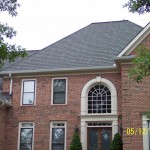 Most homeowners rarely attention to their roof until a problem occurs. As it should be, after all, the best roofs are the ones that work so well, you forget they are even there.
Most homeowners rarely attention to their roof until a problem occurs. As it should be, after all, the best roofs are the ones that work so well, you forget they are even there.
Especially those that have their roof inspected regularly and are keeping up with maintenance, chances of problems outside of damage from storms and whatnot, drop considerably,
For many other homeowners, for whatever reason, maintenance and regular inspections too often fall by the wayside and are neglected. As a result, these roofs often deteriorate without interference and often end up costing the homeowner dearly.
Whether you are in the first group or the latter, keeping an eye for danger signs is a good idea for every homeowner. Though if you are in the latter group, starting with a professional inspection by a professional roof contractor is strongly recommended.
So, where to start? Well the inside of your home is a good place to begin your inspection. Grab a flashlight and get into your attic, if you can, and have a good look around. You’re are looking for:
1) Any sagging areas
2) Leaks or other signs of water damage
3) Dark spots or trails
4) Light seeping through the roof.
Make note of any damage you find, and head outside. Look at the exterior, noting things like damaged flashing, buckled, missing, blistering, rotting or curled shingles and algae growth.
Note: Getting on a roof without the proper safety equipment, experience, and knowledge of roofing systems is extremely dangerous. Most roof estimates include inspections at no cost and we highly recommend allowing the professionals to handle the dangerous parts!
5) Look closely at the shingles, look for cracking, bald, or missing ones.
6) Look around for loose material or wear around the chimneys, pipes and vents.
7) Inspect the gutters and at the bottom of the downspouts looking for excessive shingle granules as this is a sign of wear.
8) Examine the drainage system itself, checking that gutters and downspouts are properly attached and free and clear of debris.
9) Look for signs of moisture, mold/fungi, or rot. Don’t just check damaged areas as water will travel from the damaged area to other parts of the roof causing mold, fungi, and bacteria growth within 48 hours of exposure.
10) Make sure ventilation from interior rooms such as the bathroom, kitchen, or other high humidity areas go directly outside and not into your attic.
Any one of these problems can indicate major problems compromising not only your roof but everything it protects!
If you find any problems during your inspection, your next step is to call Atlanta Roofing Specialists at 770-419-2222 in Metro Atlanta and schedule a free estimate as soon as possible!
.
